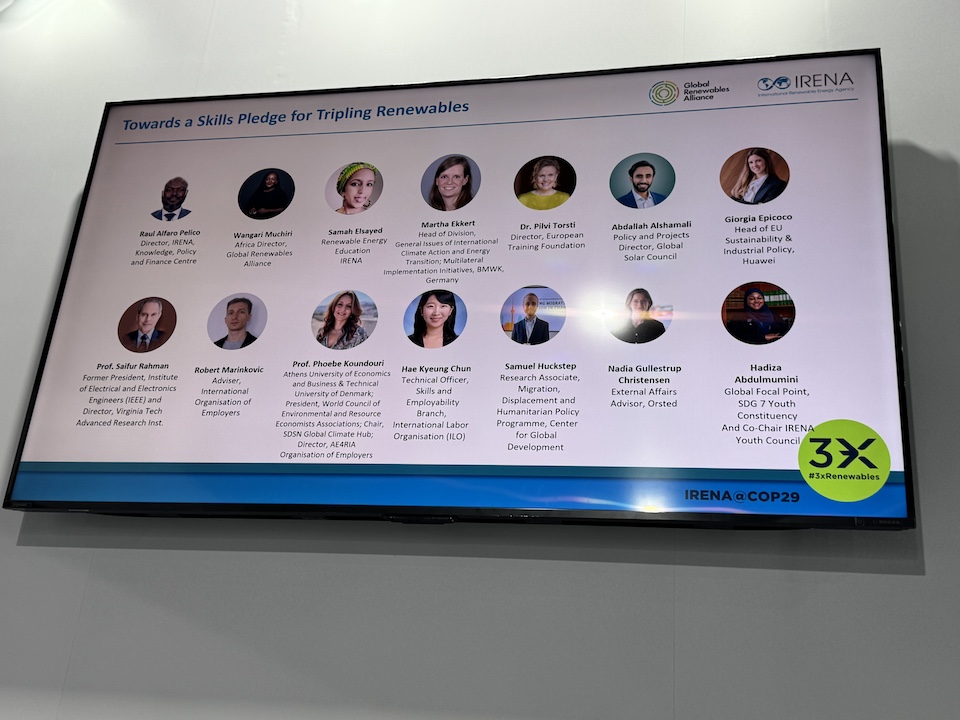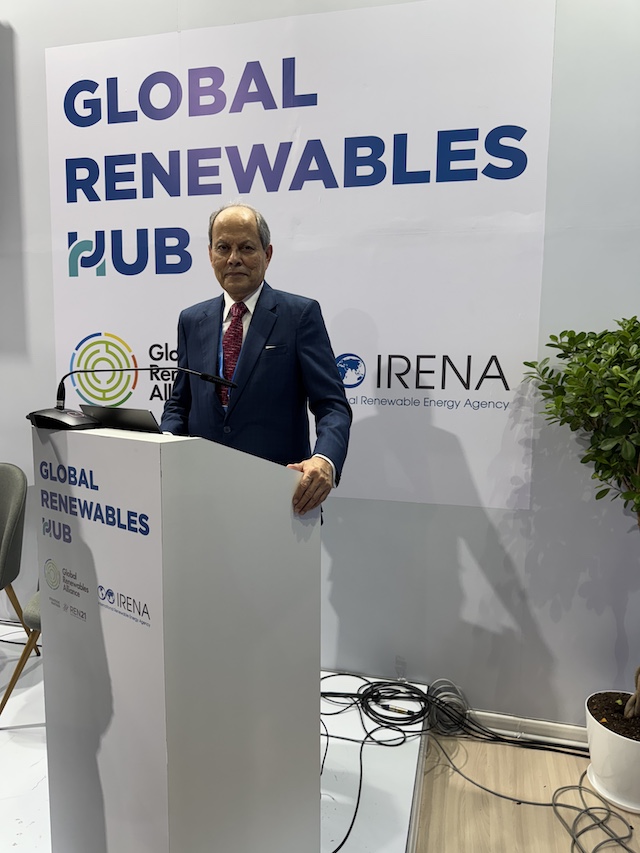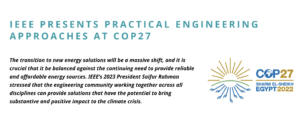The side event discussed the pathway to achieving the global goal of tripling renewable electricity capacity by 2030. This will demand a skilled workforce. Investing in education and training will therefore be vital for equipping the current and future workforce, including women and the youth, with the skills and competences needed to take advantage of the opportunities of the net zero economy. The panelists at this session highlighted how to approach governments, industry, associations, education and training providers, labour groups, civil society and international organizations to discuss a new call to action on skills development for the renewables-based energy transition.
Saifur’s talk focused on how governments can look outside their national borders to attract technologists to help with the design, installation and maintenance of renewable energy projects to achieve their carbon-neutrality goals, and how IEEE with active sections in over 350 countries and cities can facilitate the necessary knowledge transfer. HE also took the opportunity to present IEEE’s Climate Change program which was very well received. The side event was hosted by the International Renewable Energy Agency, based in Ahu Dhabi, United Arab Emirates (UAE).






